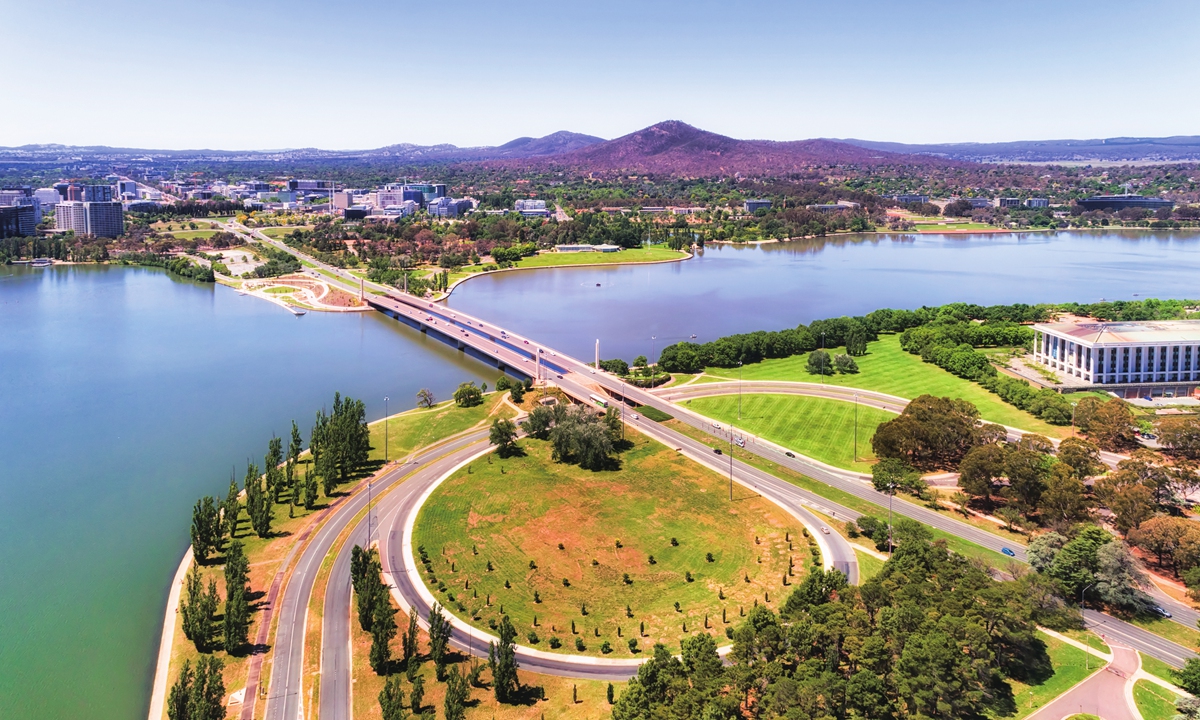Editor’s Note:
In 2023, the world continues to witness significant changes and turbulence. As we approach 2024, we conducted in-depth interviews with leading strategists from various countries and regions to gather their perspectives on the prominent global issues of 2023 and China’s role in addressing them.
In the third piece of the series, John Menadue (Menadue), former Secretary of the Department of Prime Minister and Cabinet under Gough Whitlam and Malcolm Fraser and Founder and Editor in Chief of Pearls and Irritations, a public policy journal in Australia, shared his thoughts with Global Times (GT) reporter Wang Wenwen on China’s diplomacy as well as the development of China-Australia relations in 2023.
GT: Looking back at 2023, which diplomatic achievements by China have impressed you the most? How do you evaluate China’s diplomatic performance?
Menadue: I think it’s been a very good performance. The progress of the Belt and Road Initiative, the expansion of BRICS, and the role of China in bridging the relationship between Saudi Arabia and Iran have all been very substantial achievements.
The credit goes to China. Its diplomatic clout has been improved, while America continues to make awful mistakes. The US is clearly losing influence in the Global South. China is taking a great interest and is assisting the Global South. The Global South is watching what America has done in Ukraine and now in Gaza. During the COVID-19 period, the West, and particularly the US, turned its back on the Global South, even when it had a surplus of vaccines. It didn’t supply or give any assistance to the poor countries in the Global South.
There are the historical reasons why American leadership, even its moral leadership, has been declining dramatically in the last few years. China has clearly stepped up in the areas that I mentioned. China should be quite pleased with the progress it has been making. But obviously there are major concerns about what’s happening in the South China Sea, continuing provocations over Taiwan question. There’s a lot of diplomacy still required from China.
GT: The Palestine-Israel conflict can be said to be the black swan event of 2023. What black swan or gray rhino event do you predict for 2024? Where will the next hotspot issues worthy of our attention be?
Menadue: Maybe Taiwan. The US is likely to continue to provoke China, but I hope and expect that China will be patient, and that issue will resolve itself peacefully over time. I hope there’s not a black swan event. I don’t think there will be one.
GT: China-Australia relations achieved a breakthrough in 2023. Why do you think an ice-breaking could be achieved?
Menadue: On the Australian side, I think there was a change in the language. Language can be very political. With the previous government, the language was quite hostile to China. The new government of Albanese changed that. I don’t think there’s been a great change on the Australian side of any substance, but the language has improved. The new government spoke about stabilization of the relationship.
For Australia, the economy is the main factor. China is a major market. About 30 percent of our exports go to China. That’s still very strong. And China is keen to stabilize that economic relationship, particularly now as China is becoming the major world exporter of motor vehicles. These exports have now surpassed Japan, South Korea and Germany.
As the major world exporter of cars, China needs iron, steel and lithium for batteries. So the economic relationship is important for China as well. China has got through some economic difficulties particularly in property. But it has developed significant new markets in Southeast Asia, Latin America and the Middle East. It has developed those markets not just for motor vehicles, but for other machinery and solar panels. China still depends on Australian raw materials.
They are the factors which have helped improve the relationship, but it’s still very much economic. There are a lot of other issues which will need to be addressed.
On the Chinese side, there was a softer diplomatic tone coming through from China. A number of the trade restrictions were progressively removed or reduced. That explains the reasons on both sides for the change. But in substance, the relationship still has a lot of work that needs to be done. The principal issue is a very dependent relationship that Australia has on the United States in strategic issues. That is an issue we have to resolve in Australia, but it also matters to important relationships not just with China, but with countries in our region.
GT: To what extent will Australia’s China policy be constrained by the US?
Menadue: That’s going to be a continuing problem. China is being very patient with us. We act as a proxy in Asia for the United States. And we’re increasingly being drawn into the US, not just politically, but also strategically, with US bases in Australia, with submarines, with the cooperation on intelligence and security matters.
An increasing number of Australians see that as a dangerous course for Australia, that we are ceding our sovereignty to another country. That is proceeding apace and is quite serious for us. That’s my view, but not all Australians share this view. Unfortunately the present government, I think, is allowing itself to be led into that closer strategic relationship with the US. Historically, there are various reasons for this. This is of concern, and is something we need to address in Australia, not just for our own sake, but also for relations with China and other important countries in the region, such as Indonesia and Malaysia.
GT: In the eyes of you and other older generation Australian politicians, does China really pose a threat to Australia and the US?
Menadue: I don’t think China is a threat to us or to the US. It is nonsense and absurd to be talked about as if it is. In the case of the US, what worries it is that it has to make room for another power. The US is used to being the hegemon and finds it hard to accept China’s success and its growing influence and place in the world. The US influence has fallen dramatically in so many ways, but it still clings to the belief that it’s exceptional, that it can lead the world, that it has moral leadership. But it clearly doesn’t have that moral leadership anymore when you look at Ukraine and the dreadful tragedy of Gaza at the moment. So America is losing its leadership appeal.
In the case of Australia, historically we were a settler society, settled initially from the United Kingdom. And we became very dependent upon the United Kingdom. We supported the United Kingdom in wars, in cultural and other ways. And now we’re relying on another imperial power, the US. That historic settler consciousness made us frightened of our region, frightened of Asia, frightened of China.
I’m not a representative of the older generation in Australia, because I had experiences as a university student sharing a room with Asian students. It changed my attitude back then in the 1950s. But many older Australians and also some young Australians still have the view that China is to be feared with its growing influence. Our media has been disgraceful in encouraging that belief. It reflects media ignorance about China. Undoubtedly, we will disagree with China from time to time. But there is no excuse for Australians not understanding China, its history and what motivates it at the present time. On the Australian side, we’ve got a lot of work to do.
Australians accept the world that is dominated and managed by the US, rather than coming to terms with our own region. Our future is in our region and in relations with China. That’s a major problem for a settler society like us, to reconcile our history and our geography. It’s a struggle. Unfortunately, in the last 10 years or so, we’ve lost ground in reconciling those two.













